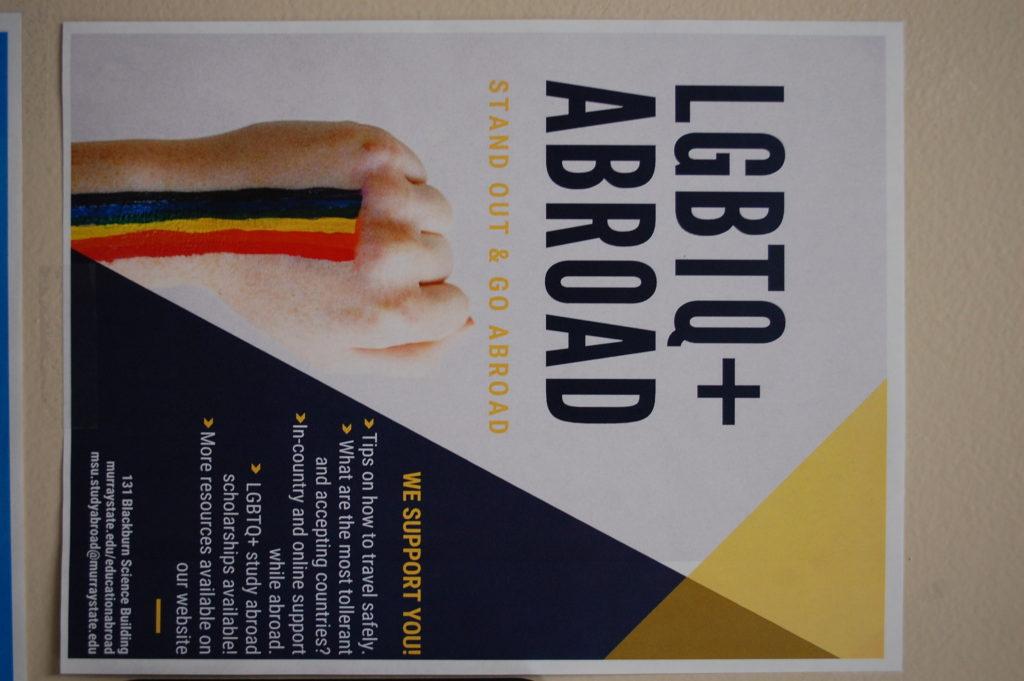Sarah Mead
Staff Writer
smead@murraystate.edu
As a part of LGBTQ history month, the Education Abroad office is currently promoting resources for the LGBTQ community.
“While it is important for any student to research his or her host country before departing, for an LGBTQ student, it is essential,” according to LGBTQ Abroad, the Study Abroad Office’s resource page for LGBTQ students. “Cultures can vary greatly in terms of what is considered appropriate behavior and how sexual identities are defined and understood. You will find that attitudes and tolerance toward gay, lesbian, bisexual and transgender issues vary from country to country, as they do within the U.S. Some countries are more welcoming and legally protective than the U.S., while others may be less accepting and more restrictive. You need to be aware of the legal issues, receptivity and social climate relating to gender identity in other countries.”
When considering studying abroad, students should research their potential host country. LGBTQ students should consider available LGBTQ resources, laws regarding homosexuality and if it is safe to be out in the host country. Students should also consider the host country’s cultural norms for dating and friendship. The visibility of and general attitude toward LGBTQ people in the host country are also important factors to understand before studying abroad.
“It is important that you are aware of and consider the implications of being identified as gay, lesbian, bisexual or transgender in the host-culture and how being ‘out’ might impact interactions,” according to LGBTQ Abroad. “If your host country is open and accepting of the LGBTQ community, take cues from the LGBTQ individuals around you. Observe how they dress and behave in order to blend in, not just into the LGBTQ community, but in your host country as well.”
Students should also speak with other LGBTQ students who have visited the host country. Previous visitors to the host country can share their experiences and offer insight to the challenges that exist in said country. On campus resources such as the Murray State Alliance student club and the Office of LGBT Programming are both available to connect students with others who have been abroad.
“Often programs place students in homestay or housing situations that are more culturally immersive,” according to LGBTQ Abroad. “It is important that all students are aware of and consider the implications of being identified as gay, lesbian, bisexual or transgender in the host culture and how coming out might affect the host family relationship. Research on your host country prior to travel is vital.”
For more information from the study abroad office, click here.




























































































